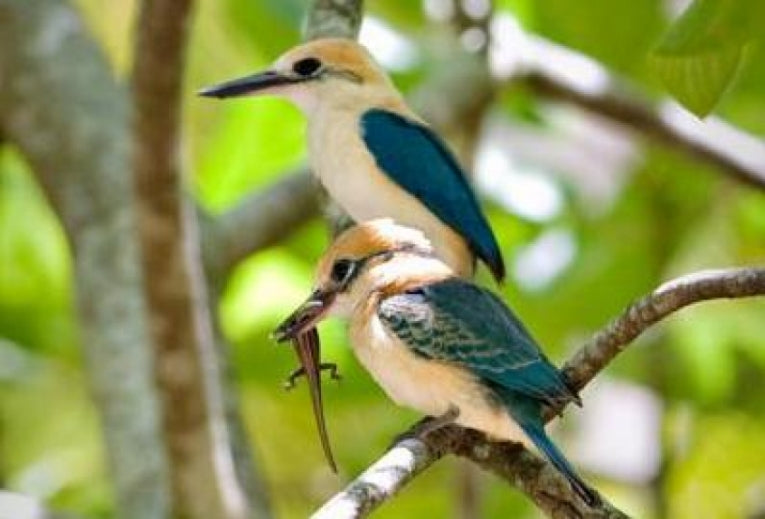Image: Tuamotu Kingfishers Credit: Kesler/University of Missouri
With bright blue feathers, an orange head a green black the Tuamotu Kingfisher is quite an eye-catcher, but with just 125 of them left on one last Pacific island seeing one was going to be a thing of the past without intervention.
A University of Missouri researcher, Dylan Kesler, has made saving these unique and exotic beauties his mission and he's trying to enlist the help of the people who share the bird's last stronghold deep in the southern Pacific Ocean.
Kesler said: ''If we lose these birds, we lose 50,000 years of uniqueness and evolution. Because it has lived in isolation for a very long time, it's unlike any other bird. There is no other bird like this on the planet.''
Kesler and his team have published their study in The Auk (published by the American Ornithologists Union) and the Journal of Wildlife Management, detailing how they intend to save the kingfishers and use radio transmitters to keep tabs on them too.
So specialised are these birds that they need a very specific set of environmental characteristics to keep going.
They hunt by pouncing on their prey from above and need good perches at least five feet off the ground in broadleaf trees or their attack method is blunted.
What they're pouncing on is usually an unfortunate lizard, which are easier to spot on open ground, making the coconut farmers' land-clearing burns great news for the kingfishers and bad news for the lizards.
They nest in dead trees, taking advantage of the soft wood to build cavities in which to shelter, so Kesler and his team are encouraging farmers to leave standing some of the dead wood they would normally fell.
Humans brought cats and rats to the island and they love to eat the kingfishers, especially juveniles. Metal bands around tree trunks are proving a limited success in slowing down the damage down by these unwelcome immigrants.
To track wild subjects, scientists regularly employ radio transmitters, but these can harm some birds, but Kesler has designed a new 'weak-link' harness which the birds can wear without ill effects before it simply drops off.
It's still an uphill struggle though, as Kesler explained: ''Unfortunately, even with all our work to date, the population is still crashing. We're seeing some turnover, but each year when we return, there are more empty territories and the population decreases. At this rate, these birds will be gone within our lifetime.''
For more information, visit: Tuamotu Kingfisher Project.










